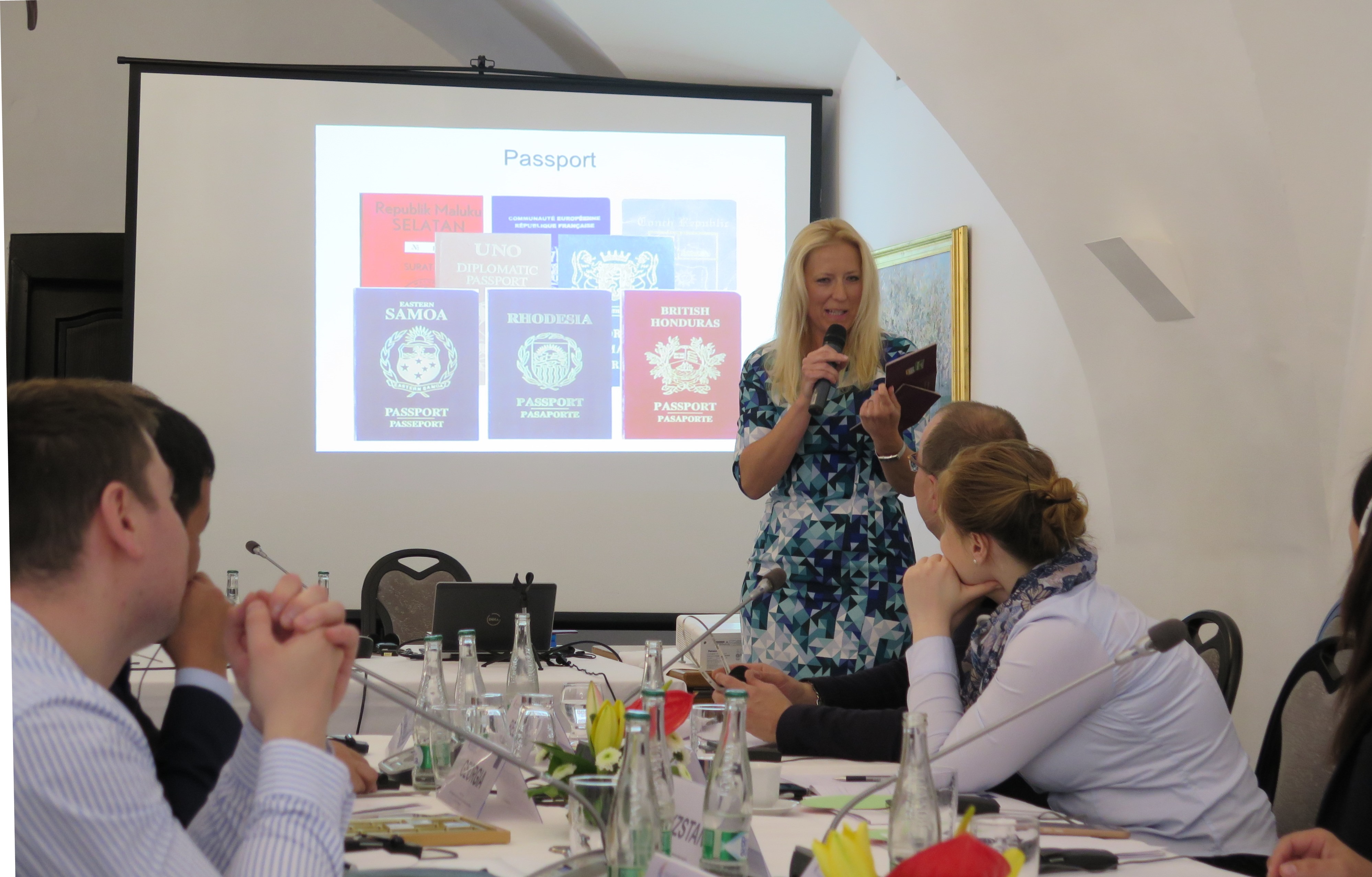The 3-day Training Workshop gathered 33 participants from 22 Prague Process states as well as EASO, UNHCR, ICMPD and the Prague Process Secretariat. The thematic focus on irregular migration resulted from the priorities previously indicated by the Prague Process participating states. The agenda was based on the results achieved under the Pilot Projects implemented in 2012 – 2016. As set out in the Bratislava Ministerial Declaration of 2016, these results shall be further mobilised within the envisaged Training Academy.
The training was opened with a presentation on migration and security by Ms. Barbora Vegrichtova (Dean of the Police Academy, Czech Republic), who introduced participants to the identification and prevention of terrorist threat and radicalisation, referring also to tailor made recommendations for awareness raising, technical support and capacity building. Ms. Monika Weber (ICMPD) then provided for the overall policy context on irregular migration and the most important definitions. After referring to various policy responses at the EU level and the different stakeholders fighting irregular entry and stay in the EU, she introduced participants to some of the specific challenges encountered, such as identity fraud, profiling of migrants, cross border crimes or impostor detection. Ms. Zuzana Armutidisova (External expert, Czech Republic) addressed the issue of effective police communication taking into account motivation, ethical codex, work in multicultural environment, discrimination, racism, xenophobia, stereotypes and prejudices.
The training workshop featured various interactive group exercises (impostor recognition, anti-corruption awareness, multicultural differences etc.) as well as case studies and concrete project examples such as the Border Management in Central Asia (BOMCA) programme. The training was concluded by an evaluation session and handover of the training certificates to the individual participants.
The final day served the visit of the Vaclav Havel International Airport in Prague where participants were guided through the airport premises receiving detailed information and insight into three main areas, namely 1) passport/document control, equipment, border surveillance and security measures; 2) Standard operating procedures with regards to detention, return and asylum applications; and 3) the practical aspects of accommodation of apprehended foreigners and asylum seekers and inter-agency cooperation.

